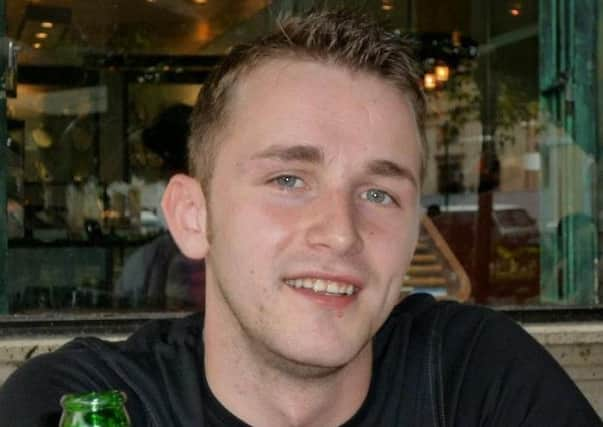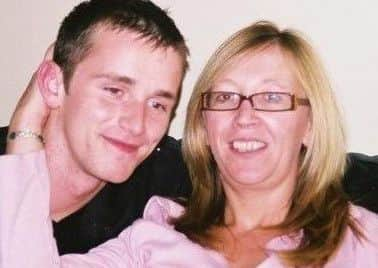Mum’s tears after law change following son’s death


A mum who forced a change in law so that Fatal Accident Inquiries can now be held for Scots who have died overseas said she cried for 48 hours after learning that her campaign had been successful.
Julie Love, of Maryhill, Glasgow has fought for better support for families who have lost a loved one in a foreign country following the death of her son Colin in 2009.
Advertisement
Hide AdAdvertisement
Hide AdColin died swimming off Venezuela while on a cruise holiday with a friend. It took four weeks for his body to be repatriated with Ms Love claiming she had to “battle at every stage” for support and information from the authorities, both at home and abroad.


Her pleas for help went straight to the top, with a letter penned to President Hugo Chavez in the hope of help.
Ms Love learned last week that the new law that will allow FAIs in some cases will soon come into effect.
She said: “I heard just out of the blue, I think I just cried for about 48 hours. I don’t think the change ( in law) will help my case but it could help all the other families out there.
“My take on what happened to Colin is that it was an awful tragic accident but I know of other families whose children have been murdered abroad and there is no inquiry, no answers. These people are perhaps more deserving of an inquiry.”
Any FAI opened into the death of a Scot abroad is at the discretion of the Lord Advocate Frank Mulholland, who must find that any investigation already held has not sufficiently established the circumstances surrounding the death.
There must also be a real prospect that the full circumstances would be established at an inquiry.
Ms Love set up the support group Death Abroad You Are Not Alone (DAYNA) in light of her loss and is doing further work with the Scottish Government on a set of practical guidelines for those trying to deal with death of a loved one overseas.
Advertisement
Hide AdAdvertisement
Hide AdThat could be as simple as knowing which airports had chaplaincy rooms or how to get documents translated into English, Ms Love said. She is also hoping to encourage airlines to give bereaved families a quiet lounge to sit in when making journeys overseas following a death in the family.
“People assume the support is there for you, but that certainly wasn’t the case with me.
“Families think that when they arrive at an airport they think there will be someone there waiting for them, but it is not like that. You are very much on your own.”
Ms Love has protested with other members of the group outside the Foreign Office for better treatment for families.
In 2014, a report by MPS on the Foreign Affairs committee found the consular service provided by the UK Foreign Office sometimes falls short of what the public “can legitimately expect”
Bereavement services offered when Britons die abroad had fallen “well below expected standards” at times, the report found, with “repeated failures of communication and compassion”, the report found.
In response, the UK Government said it was planning to further assess staff performance and gather feedback from assisted families on how they feel they had been treated.
Ms Love said she had been motivated to make changes simply because she believes it is what her son would have wanted.
She said: “Colin hated an injustice. That what I just keep thinking. That’s why I had to keep pursuing it. He just didn’t deserve what happened to him.”